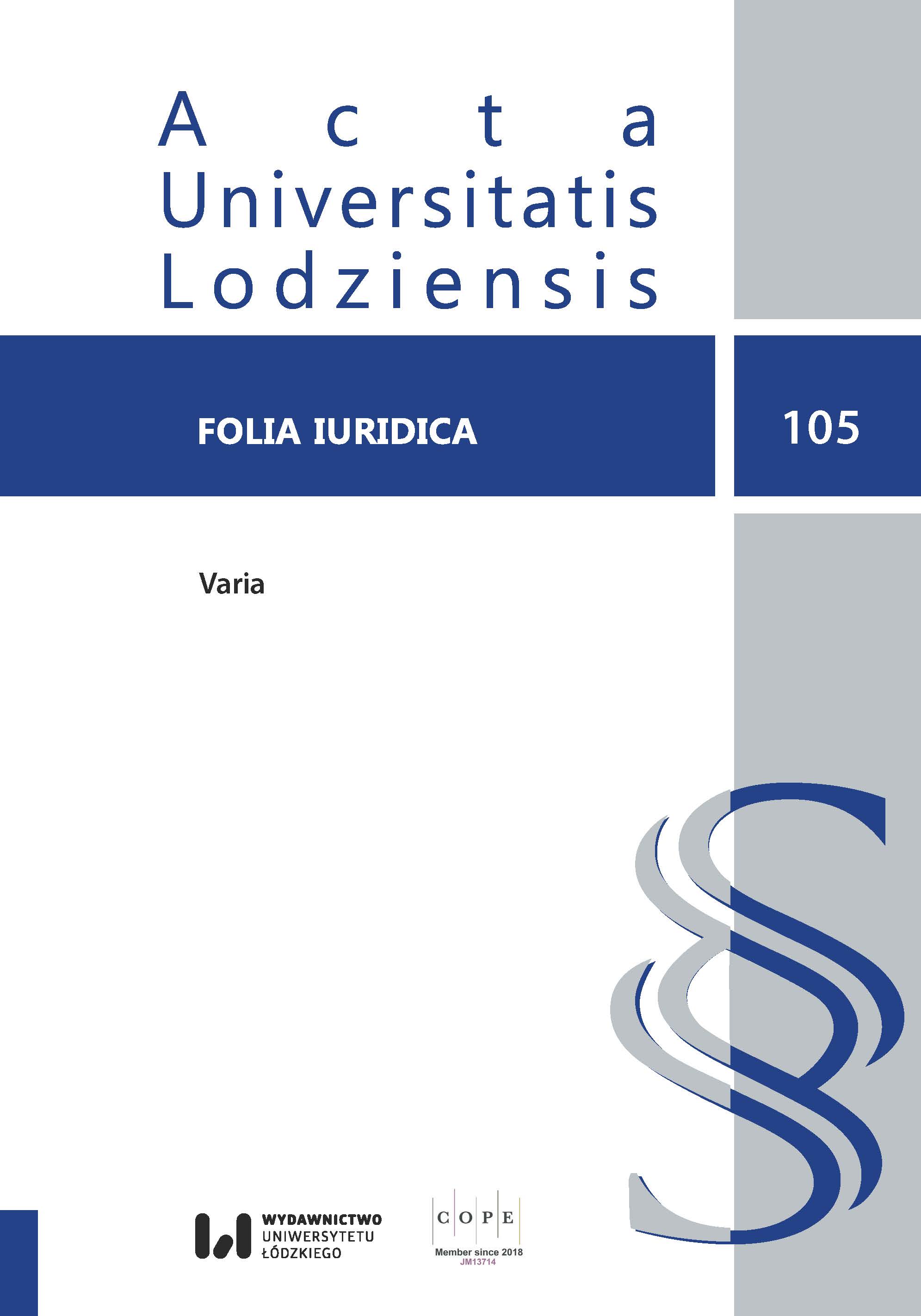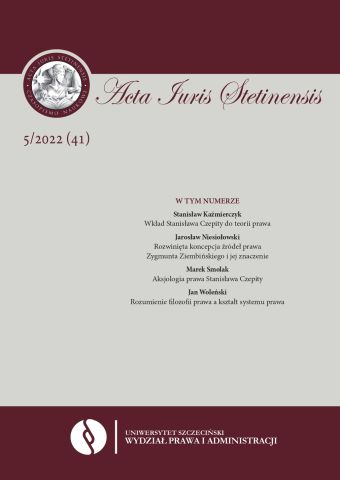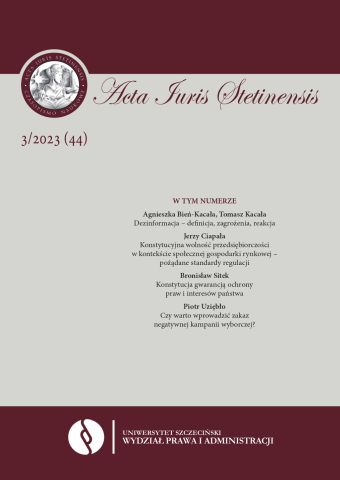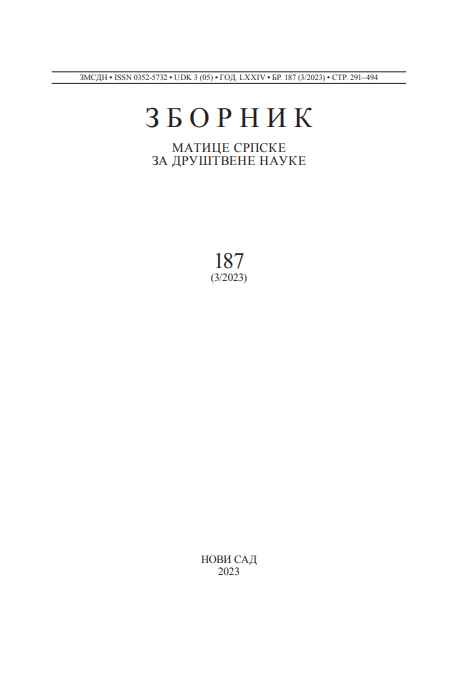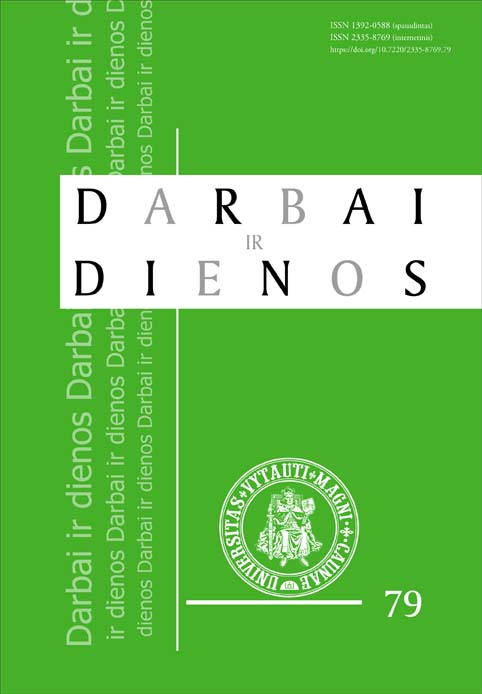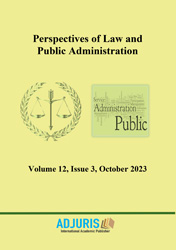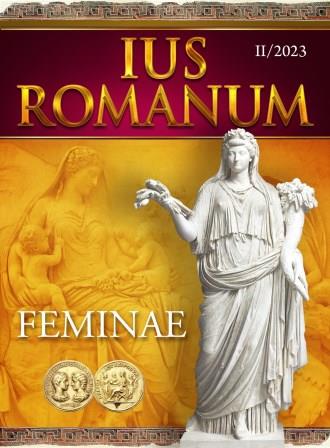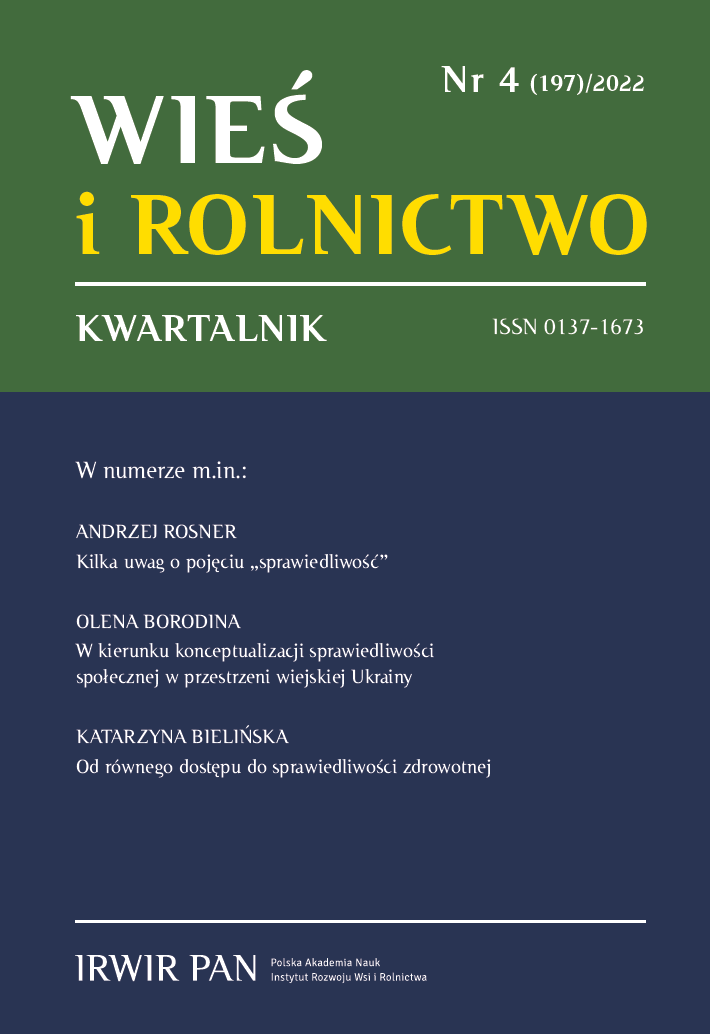
Kilka uwag o pojęciu „sprawiedliwość”
Justice is one of the basic values of ethics, which means that, like other values (good, truth, beauty), the concept of justice has a strong positive emotional charge. For this reason, the term is often used in persuasive logic, it is then used to manipulate views and attitudes. It is used to the extent to achieve political, economic, and social goals, etc. From the formal point of view, a number of principles of distributive justice can be distinguished, such as: the same to everyone, the same according to the contribution, etc. The choice of the principle of fair distribution of rewards or penalties is an arbitrary decision, they are equally correct. It is only important that the recipients who equally meet the adopted principle are treated equally. The very choice of distribution, reward or punishment principle is an indicator of the worldview that determines this choice. In practice, however, ethical value is often used to justify a choice that is in fact made for pragmatic reasons. The justification for this choice uses manipulation mechanisms related to the logic of persuasion.
More...

